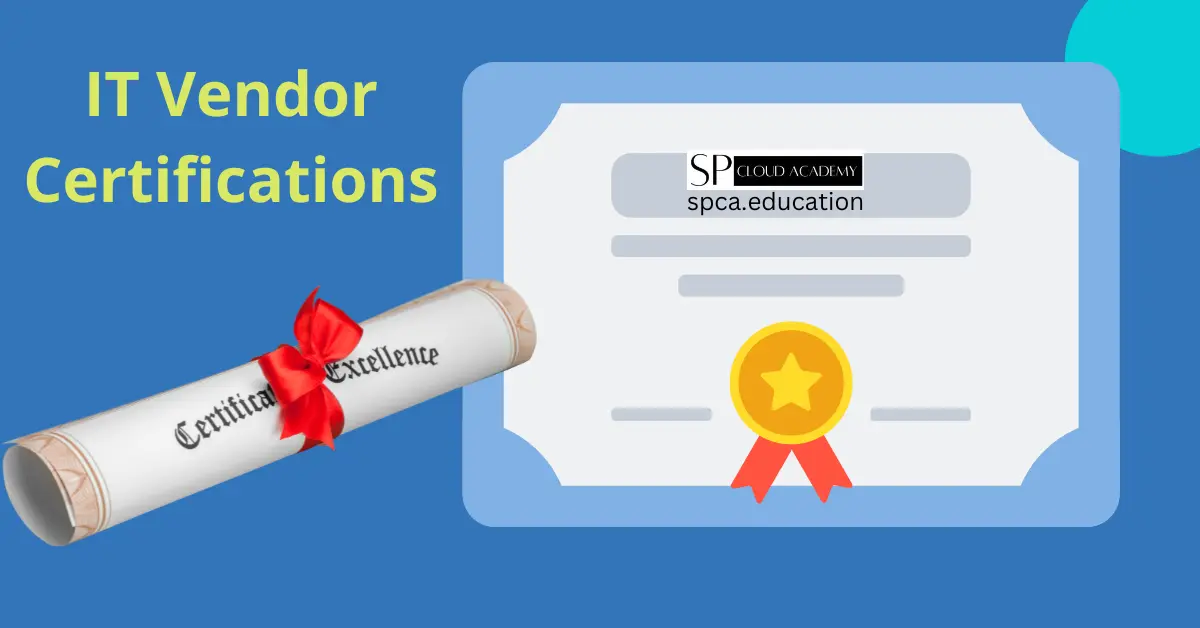Introduction to IT Vendor Certifications
In the constellation of credentials that adorn the tech industry, IT vendor certifications shine with particular luminance. But what exactly are these endorsements, and why do they hold such sway in a sector driven by innovation and expertise?
Defining IT Vendor Certifications
IT vendor certifications are specialized programs offered by technology companies to certify professionals in the use of their products or services. They serve as a benchmark for skills and knowledge, providing a tangible validation that an individual is competent in specific technologies or methodologies. These certifications often follow a tiered structure, ranging from foundational to advanced levels.
The Growing Importance of Certifications
The digital landscape is evolving at breakneck speed, and with it, the demand for skilled IT professionals continues to skyrocket. In this competitive arena, certifications are not just feathers in one’s cap; they’re essential tools for distinguishing oneself. As technologies grow more complex, employers increasingly rely on certifications to identify qualified candidates. A certification can be a deciding factor in hiring and promotion decisions, underscoring its significance.
The Career Advantages of Certification
Imagine setting sail towards career advancement with a wind that propels you forward—that’s what certifications can provide. They are more than just accolades; they are signals to the market of your commitment to continuous learning and excellence in your field. Obtaining certifications can lead to better job prospects, higher salaries, and recognition within the tech community. They can open doors to new opportunities and serve as a foundation for professional growth.
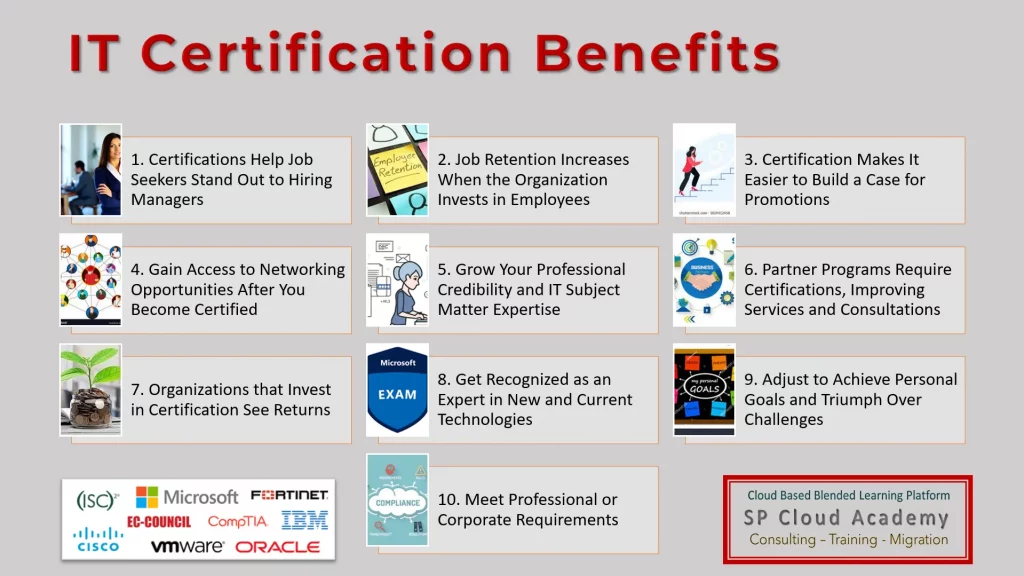
Understanding Different Types of IT Vendor Certifications
The journey through the world of IT vendor certifications begins with understanding their various categories. Like stepping stones in a garden, each certification level serves a distinct purpose and leads to new paths of opportunity. But what are these levels, and how do they differ?
Categories of Certifications: From Novice to Expert
At the entry-level, certifications are designed as launching pads for those just starting out in the tech industry. These foundational credentials, often geared towards beginners, focus on basic concepts and skills that are essential across the board. For professionals who have established themselves, the next tier of certifications offers a deeper dive into more complex systems and technologies. These professional-level certifications often require prior knowledge or experience and are aimed at individuals looking to solidify their expertise in specific areas. Finally, for the seasoned experts, there are advanced certifications which require a high level of proficiency and are intended for those who aspire to be leaders and innovators in their field.
Key Vendors and Their Certifications
- Microsoft: Microsoft offers certifications to validate skills in various technologies like Azure, Microsoft 365, SQL Server, and Dynamics. By passing exams that test hands-on ability, certified professionals demonstrate expertise deploying, configuring, troubleshooting, and optimizing Microsoft solutions. The credentials showcase competence implementing real-world scenarios, enhancing careers with sought-after skills that keep pace with cloud and AI innovations. Whether an administrator, developer, data or business analyst, or solution architect, certification proves technical proficiency to employers. Explore more from official source: https://learn.microsoft.com/en-us/credentials/
- Google: Google offers certifications to validate skills across Google Cloud, Google Workspace, data analytics, project management, UX design, and more. By passing performance-based exams and assessments, certified professionals demonstrate ability to properly use, configure, integrate, architect, or optimize Google tools and services. The credentials showcase competence in real-world scenarios, helping careers stay relevant with in-demand skills. Whether a cloud engineer, data analyst, IT support specialist, project manager, or designer, Google certification proves hands-on proficiency to employers seeking qualified talent for roles focused on Google technologies. Explore more from official source: https://grow.google/certificates/
- Cisco: Cisco certifications validate understanding of networking technologies like routing, switching, security, collaboration, data center, and more. By passing exams testing real-world skills, certified professionals prove competence installing, configuring, operating, and troubleshooting complex enterprise networks. The credentials allow candidates to demonstrate hands-on abilities configuring and managing Cisco infrastructure for small businesses to global enterprises. Whether an entry-level network technician, mid-level network engineer, or expert-level architect, Cisco career certification offers globally recognized proficiency levels sought after by employers seeking qualified network talent. Explore more from official source: https://www.cisco.com/c/en/us/training-events/training-certifications/certifications.html#~certifications
- Amazon Web Services (AWS): AWS certifications validate technical skills working with Amazon cloud services for computing, storage, databases, networking, analytics, machine learning, and more. By passing exams focused on real-world expertise, certified professionals prove competence architecting, developing, operating, and troubleshooting complex cloud-based solutions. The credentials allow candidates to demonstrate hands-on abilities deploying AWS infrastructures for startups to enterprises. Whether a cloud practitioner, solutions architect, sysops administrator, developer, or devops engineer, AWS certification offers globally recognized proficiency sought after by employers seeking qualified cloud talent. Explore more from official source: https://aws.amazon.com/certification/
- VMware: VMware certifications validate skills in deploying and managing virtualization and cloud solutions utilizing VMware products. By passing performance-based exams, certified professionals demonstrate competence installing, configuring, optimizing, troubleshooting and automating VMware infrastructure for compute, network, storage, and security. The credentials allow candidates to prove hands-on abilities architecting and scaling virtual environments from small business to complex data centers. Whether a virtualization administrator, network specialist, cloud architect, automation engineer, or VDI expert, VMware certification offers globally recognized virtualization and cloud proficiency for in-demand jobs. Explore more from official source: https://www.vmware.com/learning/certification.html
- CompTIA: CompTIA certifications are internationally recognized credentials that validate foundational IT skills across various technology areas like hardware, networking, operating systems, and cybersecurity. They demonstrate competence in core IT skills like configuring devices, troubleshooting issues, managing networks and data, identifying security risks and responding to incidents. Popular certs include A+, Network+, Security+, Linux+ and Cloud+. CompTIA certs are vendor-neutral and performance-based, focusing on hands-on skills rather than just conceptual knowledge. They provide a stepping stone for IT careers in roles like help desk, systems administration, network engineering and cybersecurity analysis. Explore more from official source: https://www.comptia.org/certifications
- Red Hat: Red Hat Certifications validate skills and knowledge in administering and maintaining Red Hat Enterprise Linux environments. They cover areas like systems administration, security, virtualization, storage, networking, cloud computing, and automation. By passing performance-based exams that test real-world job skills, certified administrators prove they can configure secure, scalable, and reliable infrastructure using Red Hat technologies. The certifications enable professionals to advance their careers and organizations to benefit from highly capable Linux IT talent. With different levels from entry to architect, Red Hat Certifications build in-demand open source skills. Explore more from official source: https://www.redhat.com/en/services/training-and-certification?trk=public_profile_see-credential
- Adobe: Adobe Certified Associate certifications validate entry-level skills in using Adobe creative tools like Photoshop, Illustrator, InDesign, and Premiere Pro. By passing exams that test software knowledge and aptitude, designers, photographers, and video editors can prove core abilities to employ these tools in print, web, and video production workflows. With focused learning objectives and real-world applicability, ACA certs allow creative professionals to stand out, open career opportunities, and highlight a practical foundation in key Adobe applications. Offered globally through Certiport centers, they provide credible affirmation of skills needed to succeed in creative roles and industries. Explore more from official source: https://learning.adobe.com/certification.html
- IBM: IBM certifications validate expertise across IBM’s product portfolio and enterprise IT ecosystem, including areas spanning hybrid cloud, data and AI, automation, security, and software development. Offered across multiple proficiency tiers, credentials assess real-world skills and abilities in designing, implementing, managing and optimizing complex IT solutions on IBM platforms such as IBM Cloud, AIX, IBM Storage, z/OS, and Watson. By passing written and hands-on labs testing latest offerings and industry knowledge, professionals can prove proficiency from associate to expert level and drive their career growth. The credentials highlight experience with innovative IBM technologies powering businesses worldwide and enable individuals to stand out as trusted leaders for in-demand digital transformation skills. Explore more from official source: https://www.ibm.com/training/credentials
Specialty Certifications for Niche Areas
For IT professionals passionate about specialized fields, niche certifications can be a beacon in the dark. Cybersecurity enthusiasts might pursue the Certified Information Systems Security Professional (CISSP) to prove their prowess in securing critical assets. Those inclined towards cloud computing might gravitate towards the AWS Certified Advanced Networking or the Google Professional Cloud Architect certifications to showcase their cloud infrastructure skills. Network management experts, on the other hand, could consider the Cisco Certified Internetwork Expert (CCIE) to demonstrate their mastery of complex network solutions.
Each category and specialty of IT vendor certifications offers unique benefits and caters to different career stages and interests. As the tech landscape continues to expand, these certifications become vital signposts, guiding professionals towards their desired destinations within the industry.
Why IT Vendor Certifications Matter
In the realm of technology, where skill sets and industry demands evolve swiftly, IT vendor certifications stand as markers of proficiency and dedication. But why do these certifications carry so much weight? Let’s delve into the reasons that make these badges of honor more than just fancy titles on a resume.
Validating Skills and Knowledge
The first and foremost function of IT vendor certifications is to validate a professional’s skills and knowledge in a specific area. When an individual earns a certification, it signifies that they have met the standards set by the certifying body, which is often a leading player in the tech field. This endorsement can be particularly compelling when it comes from established vendors like Microsoft or Cisco, whose products and services are widely used across the industry. Certifications act as a shorthand, telling employers that the certified individual is proficient with the latest technologies and techniques.
Employability and Career Growth
Certifications are more than just accolades; they are tools that can significantly impact an IT professional’s employability and career trajectory. According to a report by Global Knowledge, 93% of employers believe IT certifications play a key role in the hiring process and are a reliable indicator of a candidate’s ability. Furthermore, professionals with certifications are often considered for higher-level positions and may experience accelerated career growth compared to their uncertified peers. By obtaining certifications, IT professionals not only demonstrate their commitment to their field but also increase their visibility in a crowded job market.
The Value of Certifications: By the Numbers
To underscore the value of IT vendor certifications, let us look at some compelling statistics. A survey by Pearson VUE revealed that 65% of IT professionals who earned a certification received a salary increase or bonus. Additionally, case studies highlight individuals who have leveraged certifications to transition into more specialized roles, such as moving from general IT support to cybersecurity, where the demand for certified experts continues to grow. These figures and narratives paint a clear picture of how impactful certifications can be in charting a successful IT career.
As we navigate through the dense forest of technological advancements, IT vendor certifications emerge as guiding lights—for they not only signal competence but also unlock doors to new opportunities and recognition in the tech community.
Preparing for IT Vendor Certification Exams
Embarking on the journey to obtain an IT vendor certification is a pivotal step in fortifying your tech prowess. But what does it take to ensure you’re exam-ready? Let’s break down the essentials of effective exam preparation.
General Steps for Exam Readiness
Firstly, a structured approach is paramount. Begin with understanding the exam objectives and format. Then, create a study plan that aligns with these goals. Your plan should include reviewing study materials, engaging in hands-on practice, and enrolling in relevant training courses. These steps serve as the foundation of your certification pursuit and are crucial for deepening your understanding of the subject matter.
Effective Study Habits and Learning Resources
When it comes to studying, consistency is key. Carve out dedicated study times in your schedule and stick to them religiously. Diversify your learning methods by employing a mix of resources. Online courses are a treasure trove of information, offering flexibility and depth. Forums and study groups provide a collaborative environment where you can learn from peers and share knowledge. Interactive learning platforms, such as virtual labs, also simulate real-world scenarios, giving you a practical edge.
In addition to formal resources, don’t overlook the value of flashcards for memorization, practice exams to test your knowledge, and instructional videos that can break down complex topics into digestible chunks. Remember, variety not only keeps you engaged but also caters to different learning styles.
Gaining Practical Experience
Theoretical knowledge will only take you so far; practical experience ensures you can apply what you’ve learned. If your current role provides opportunities to use the technology you’re being certified in, dive in and make the most of it. For those seeking experience outside of work, consider volunteer projects or internships. Even setting up a home lab to tinker with software or hardware can be immensely beneficial.
Real-world experience solidifies your understanding and gives you confidence. It’s about turning theory into action, and there’s no substitute for the learning that occurs when you’re solving actual problems.
Navigating the Certification Process
Embarking on the certification journey begins with a critical decision: selecting the right IT vendor certification. This choice is pivotal as it should align with your career objectives and expertise. The landscape of certifications is vast; therefore, research is key. Consider the technologies or products you’re passionate about and identify the vendors who offer credentials in those areas. Once targeted, investigate the prerequisites for the exams to ensure you meet the necessary qualifications before delving into the registration process.
Choosing the Right Certification
With the plethora of options available, zeroing in on a certification demands an assessment of one’s current skills and the desired direction for professional growth. It’s advisable to consult with seasoned professionals, peer networks, or mentors who can provide insights about the value and recognition of specific certifications within the industry. After pinpointing the certification, the next step is to register for the exam through the vendor’s official website, where you’ll pick a date that allows ample time for preparation.
Understanding Exam Formats and Question Types
IT vendor certification exams can vary significantly in format. Some tests may consist of multiple-choice questions, while others incorporate interactive elements like simulations or drag-and-drop exercises. Familiarizing yourself with the exam’s structure is crucial for effective preparation. Vendors often provide breakdowns of the question formats and weighting of topics covered, which can be found in exam blueprints or study guides. In addition, practice exams can be invaluable in acclimating to the timing and nature of questions you’ll encounter.
Time Management Strategies
Effective time management can make or break your success on exam day. It’s essential to understand the duration of the test and allocate your time wisely across sections. Practice tests not only aid in reinforcing knowledge but also serve as a tool for honing your time management skills. A common strategy is to quickly scan through the entire exam at the start, answering questions you’re confident about first, and marking more challenging ones for review if time permits.
Staying Current: Recertification and Skill Maintenance
The tech industry evolves rapidly, and staying current with these changes is paramount. Most IT vendor certifications have a validity period after which recertification is required. This ensures that IT professionals keep up-to-date with the latest advancements. The recertification process typically involves passing a newer version of the exam or completing continuing education credits. Regularly engaging with professional communities, webinars, and workshops can also help maintain a cutting-edge skill set.
Section 6: Leveraging Certifications for Career Advancement
Once you’ve earned IT vendor certifications, the next crucial step is to showcase them effectively. But how exactly can you make your hard-earned certifications work for you in the real world? Let’s explore practical strategies for highlighting these achievements and using them to fuel your career growth.
Highlighting Certifications on Your Resume and LinkedIn Profile
Your resume and LinkedIn profile are prime real estate for flaunting your certifications. They serve as your professional storefronts, so it’s essential to display your credentials prominently. On your resume, consider creating a dedicated ‘Certifications’ section right after your education details. This not only draws attention to your qualifications but also helps in passing through the Applicant Tracking Systems (ATS) that many companies use. For LinkedIn, add certifications to the ‘Licenses & Certifications’ section and ensure they’re up-to-date. You can even include badges or logos provided by the certifying vendors to visually enhance your profile’s appeal.
Leveraging Certifications During Job Searches and Salary Negotiations
Certifications can be a powerful leverage in job searches and salary negotiations. They validate your expertise and show a commitment to professional development—traits that employers value. When searching for a job, tailor your applications to highlight how your certifications align with the job requirements. Use this as a talking point during interviews to demonstrate your proficiency. In salary negotiations, certifications can justify higher pay rates. Be prepared with industry salary data that reflects the added value of your certifications to strengthen your position.
Aligning Certifications with Long-Term Career Goals
It’s vital to ensure that the certifications you pursue align with your long-term career aspirations. Start by identifying the skills and technologies most relevant to your desired career path. Then, choose certifications that will bolster those areas. Think of certifications as stepping stones toward your bigger career objectives—each one should bring you closer to where you want to be. Don’t forget to reassess and plan for future certifications that will keep your skills sharp and your credentials relevant in an ever-changing tech landscape.
Addressing Common Concerns about IT Vendor Certifications
As we delve into the intricacies of IT vendor certifications, it’s crucial to address some prevailing doubts that may cloud your decision-making process. Let’s start by dispelling myths and unravel the truth behind the value of these certifications.
Debunking Myths and Misconceptions
One common myth is that IT certifications are only for those at the beginning of their career path. In reality, certifications can serve as a catalyst for professionals at any stage, by keeping their skills sharp and relevant. Another misconception is that these certifications quickly become outdated; however, with the tech industry’s pace, continuous learning is essential and certifications often include the latest advancements and practices.
The Cost-Benefit Analysis of Certifications
When it comes to the cost versus return on investment for IT certifications, many raise concerns about whether the effort justifies the expense. It’s important to consider that certifications can lead to higher earning potential and more job opportunities. Although there’s an upfront cost, this should be viewed as an investment in your professional future. Over time, the benefits gained from improved expertise often outweigh the initial costs.
Tackling Certification Challenges
Now, let’s address the challenges of time management and work-study balance. Pursuing a certification while maintaining your job demands can seem daunting, but with effective strategies, it’s achievable. Key to success is creating a structured study plan, using resources like online courses that offer flexibility, and joining study groups for motivation and support.
By understanding the true value of IT vendor certifications and how to navigate the challenges they present, you can make an informed decision about your professional development. Remember, the path to certification is not just a journey of learning, but also a strategic step towards enhancing your career.
Conclusion and Call-to-Action
In the journey through IT vendor certifications, we’ve explored a landscape rich with opportunities for professional growth and skill validation. As we draw this guide to a close, let’s crystallize the key takeaways and reflect on how these certifications are not just badges of honor, but powerful catalysts for career advancement.
Summarizing IT Vendor Certification Significance
Certifications stand as a testament to an individual’s dedication and expertise in specific areas of technology. They serve as a bridge connecting IT professionals with the ever-evolving demands of the tech industry. From entry-level to expert designations, these certifications cater to a range of skills and specialties, including niche fields like cybersecurity and cloud computing. Recognized by key vendors such as Microsoft, Cisco, and AWS, the credentials gained through these programs can significantly enhance employability and provide a competitive edge in the job market.
Aligning Certifications with Career Goals
Your career is a marathon, not a sprint, and selecting the right certifications is akin to choosing the best training regimen. To align with your long-term aspirations, assess the technological domains that excite you and identify where you wish to excel. Whether you’re looking to deepen your expertise or pivot to a new specialty, there’s a certification path tailored to your ambitions. Reflect on the discussions of various IT certifications and consider how they intersect with your professional objectives. By doing so, you’re setting a deliberate course towards achieving your career milestones.
Motivating the Next Steps
Now comes the pivotal moment: taking action. Armed with knowledge about the value and process of obtaining IT vendor certifications, you are poised to embark on this transformative journey. Embrace the challenge ahead, whether it’s registering for that first exam or investing time into advanced study. Remember, the road to certification is paved with resources designed to support your success, from online courses and study groups to hands-on practice.
To begin, select a certification that best suits your goals and start planning your study schedule. Engage with the community of IT professionals who have walked this path before you, and leverage their insights. Above all, commit to the pursuit of excellence. With each certification, you’re not only proving your proficiency but also building a foundation for a thriving career in the tech industry.
Let this be your call-to-action: Step forward into the realm of possibility that IT vendor certifications offer. Consider your aspirations, choose a certification that resonates with your career vision, and take the decisive step towards enhancing your professional life. The tech industry awaits, and with the right certifications in hand, you’re ready to make your mark.
Whether you are at the start of your IT career or looking to reach new heights, the time to act is now. Seize the opportunity to distinguish yourself and pave the way for a future filled with achievements and advancements. Take the next step today and set the foundation for a fulfilling and successful career in technology.
See Also
Microsoft Certification Details
-
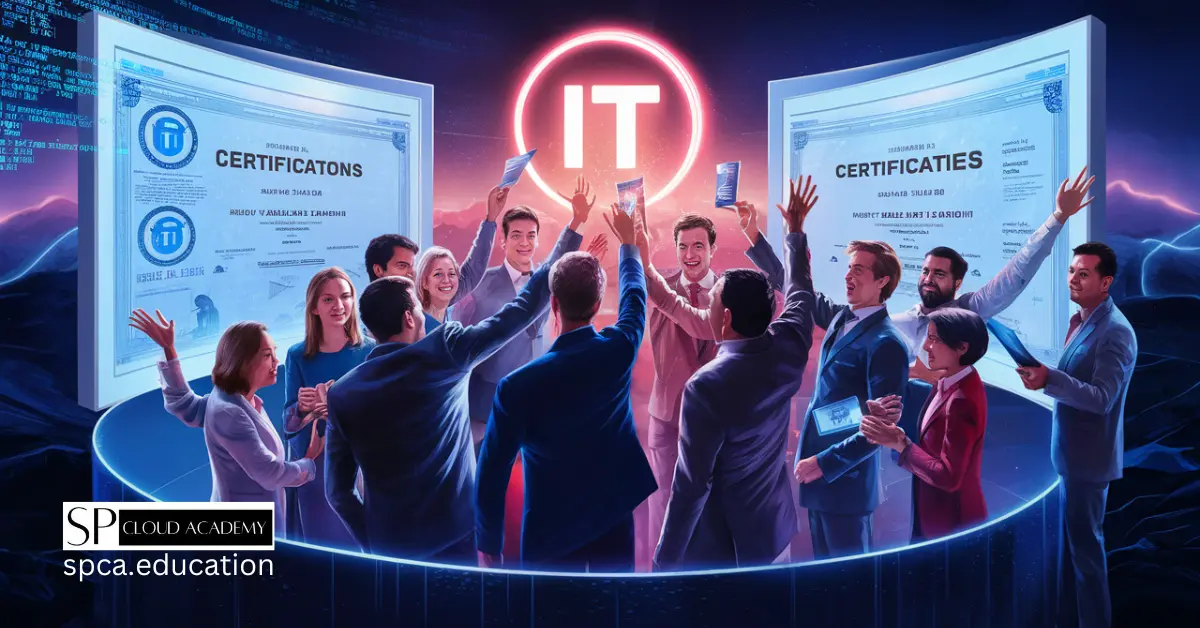
IT Certifications: Boosting Your Career
-

Future-Proof Your Career: Exploring the Latest Microsoft Cloud Certifications for 2024
-
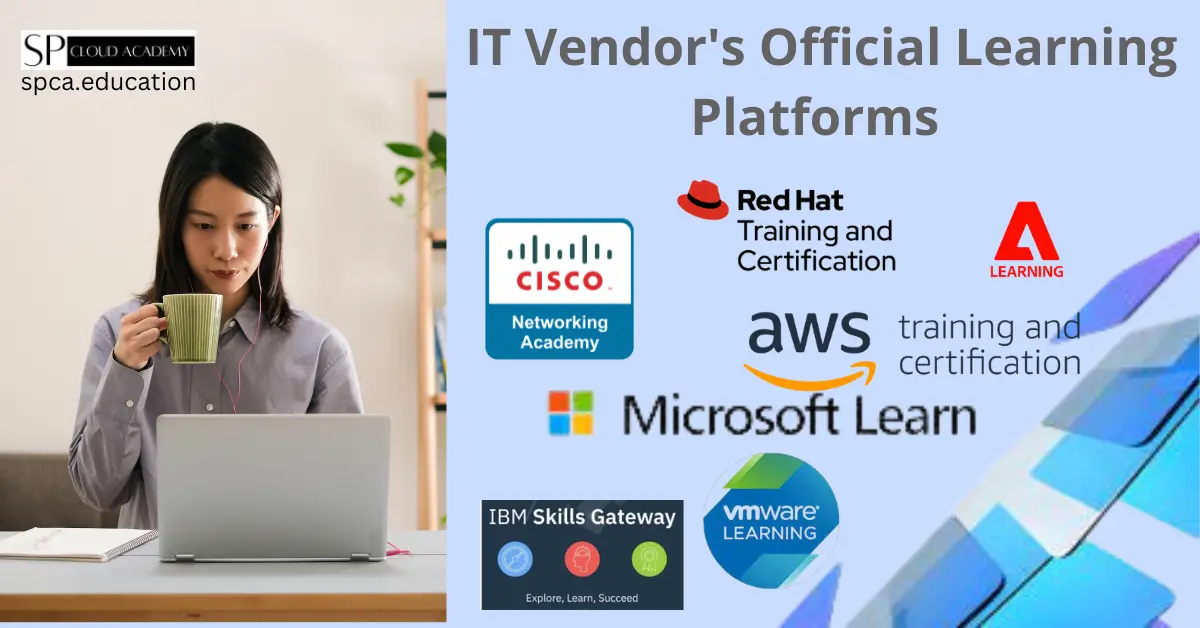
The Ultimate Official Learning Sources for IT Vendors: Your Path to Professional Growth
-
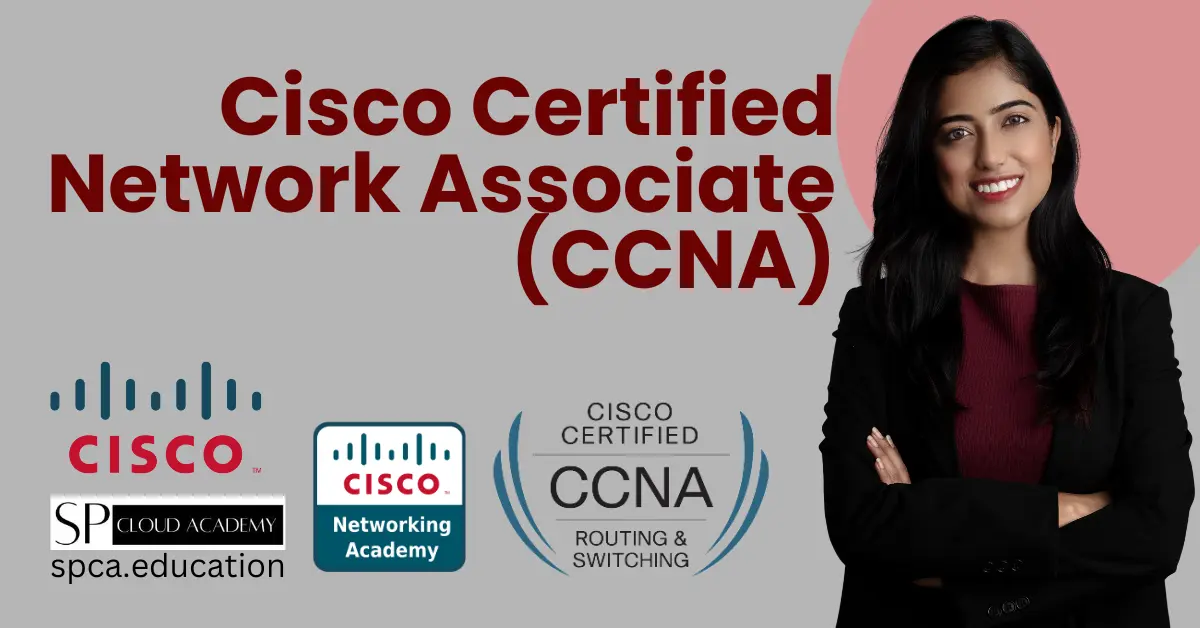
The Ultimate Guide to CCNA Certification: Your Path to Networking Success
-
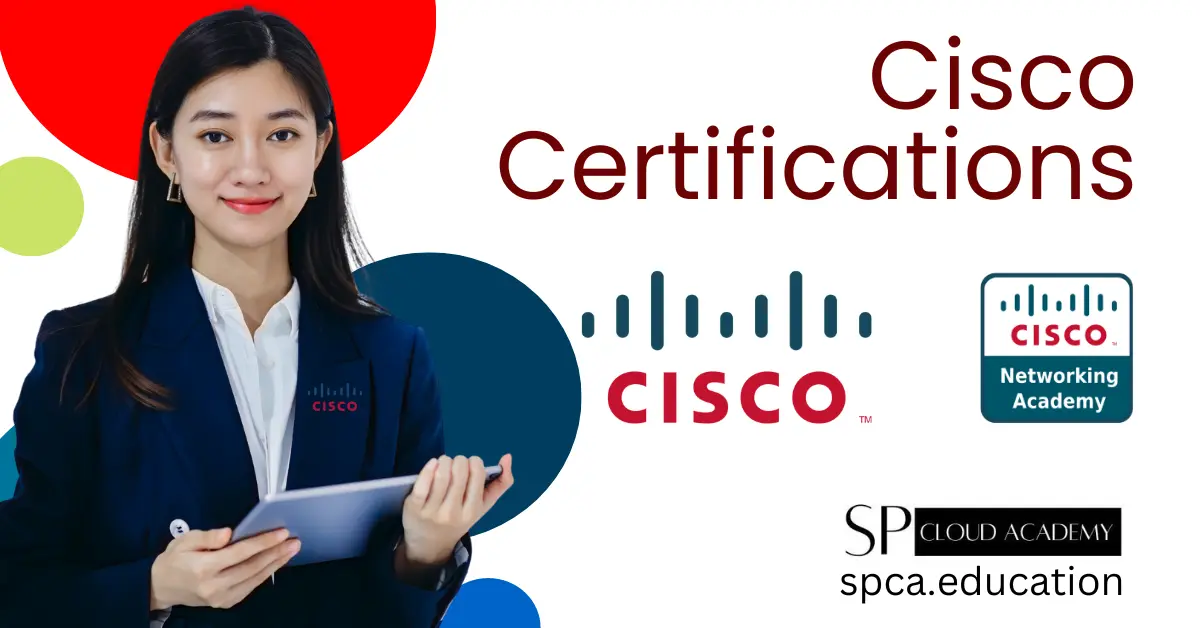
Unlock Your Career Potential with Cisco Certifications
-
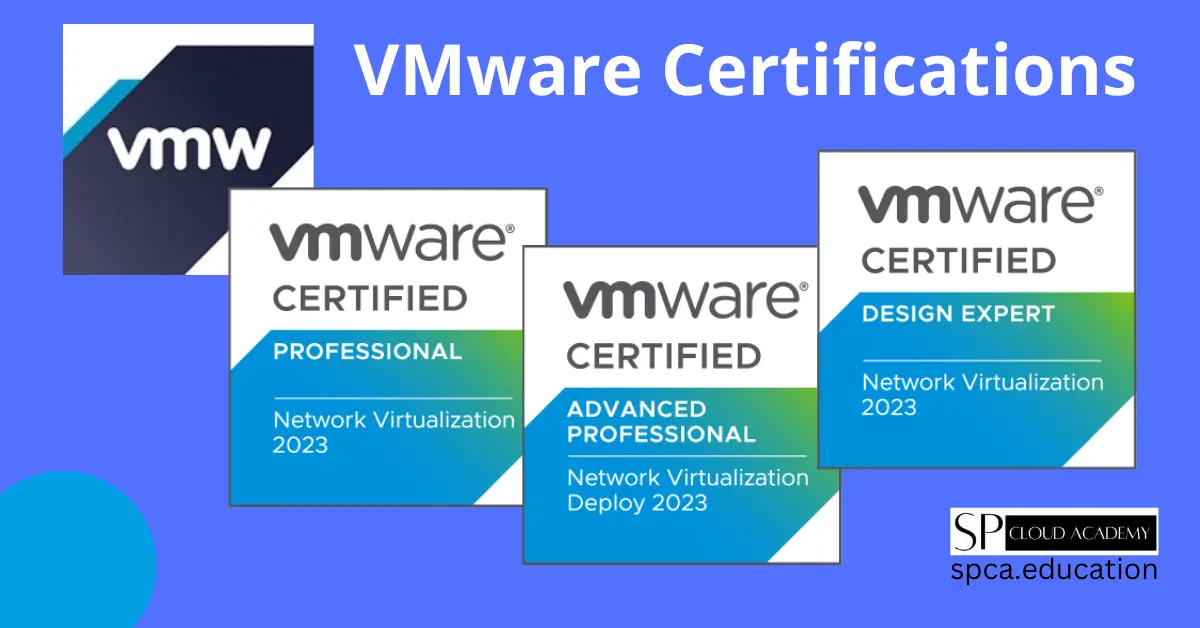
Master Your IT Career with VMware Certifications: The Path to Success
